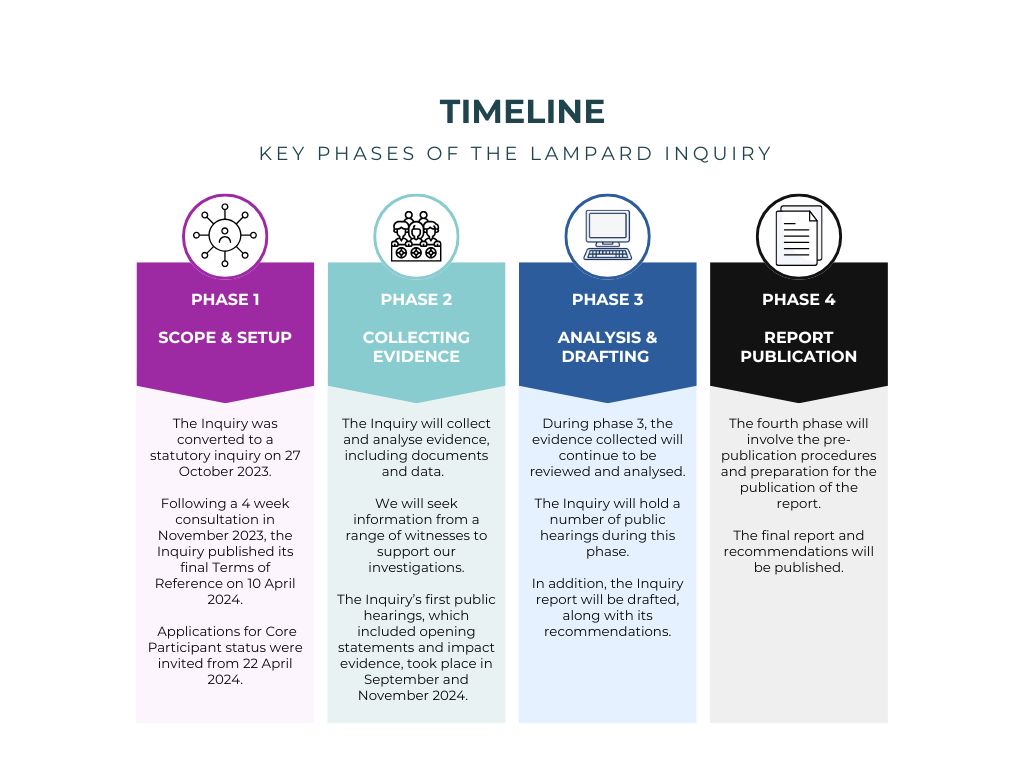The purpose of this page is to help guide you through the relevant information on our website and to help you to understand how you could participate in the Inquiry’s work.
Background to the Inquiry
The Lampard Inquiry is a statutory investigation into mental health inpatient deaths in Essex. It is led by Baroness Kate Lampard CBE and builds on the work of the Essex Mental Health Independent Inquiry.
Following a formal notice of conversion issued by the Department of Health and Social Care on 27 October 2023, the Inquiry was granted statutory status, giving it legal powers to compel evidence and witness participation. Meet the Team that lead the Inquiry.
A public consultation on the Inquiry’s Terms of Reference was held from 1 November to 28 November 2023. The final Terms of Reference were published on 10 April 2024.
Timeline
The image below outlines the stages of the Inquiry. We are currently in Phase 2 – Collecting Evidence
